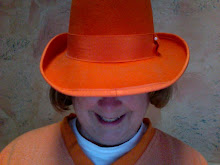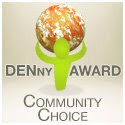 from the Selene website...
from the Selene website...Would young people learn science better if it were packaged in a videogame?
That's the question at the heart of the Selene project. Originally funded by NASA and now carried on through a four-year grant from the National Science Foundation, Selene studies videogame learning and the ways researchers can assess how effectively that learning takes place.
The Center for Educational Technologies® at Wheeling Jesuit University created the Selene online game to see how organizations like NASA could best use videogames to introduce important science concepts.
Named after the Greek lunar goddess, Selene challenges players to learn the major geologic processes scientists believe formed the modern Moon. Players create their own moon and then pepper it with impact craters and flood it with lava. It's a great opportunity for students to learn about lunar geology while helping researchers study some key videogame design principles. In addition, playing Selene offers a way to take part in the International Year of Astronomy 2009, a global celebration of astronomy and its contributions to society and culture, highlighted by the 400th anniversary of the first use of an astronomical telescope by Galileo Galilei.
The Center for Educational Technologies produced Selene to conduct its research. If you're a student between the ages of 13-18, we'd love to have you play. The game takes about an hour to complete, but you can spend more time after checking out Selene's various resources about the Moon. To play, though, you have to be enrolled by an adult recruiter to ensure parent/guardian consent for your participation.
If you're an adult who'd like to help out, click on the Recruiter button at left and help us find players to take part in the study. Being a recruiter is simple and doesn't involve a lot of paperwork. The whole process involves getting oral consent from a parent or guardian, then forwarding Selene registration access to your recruited players. It's that simple.
Join us in this exciting venture and be a part of cutting-edge research sponsored by the National Science Foundation.












No comments:
Post a Comment